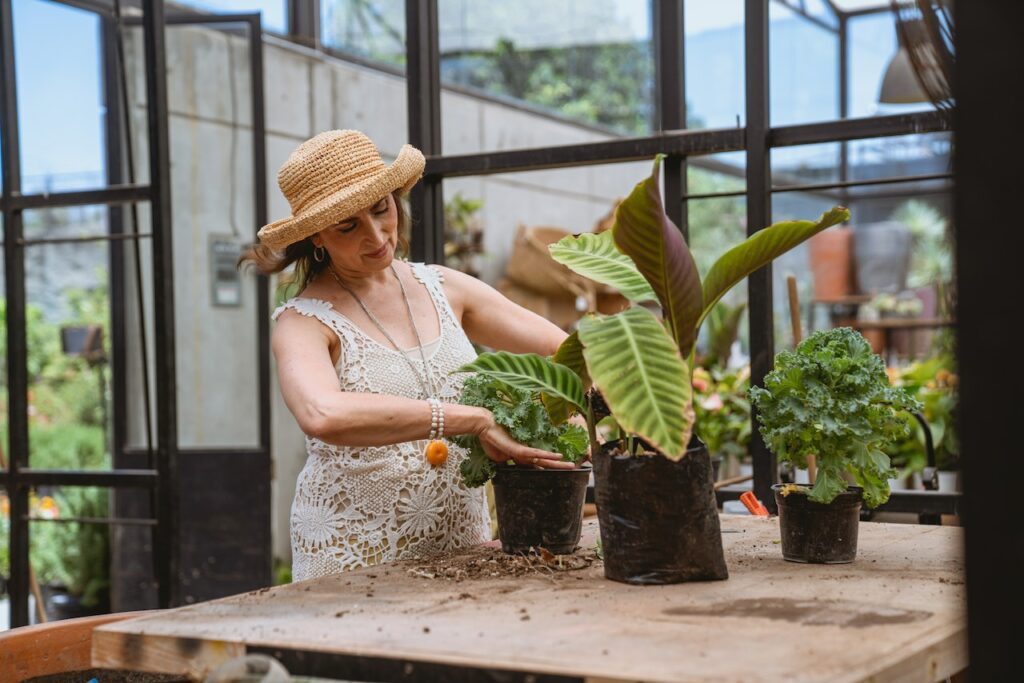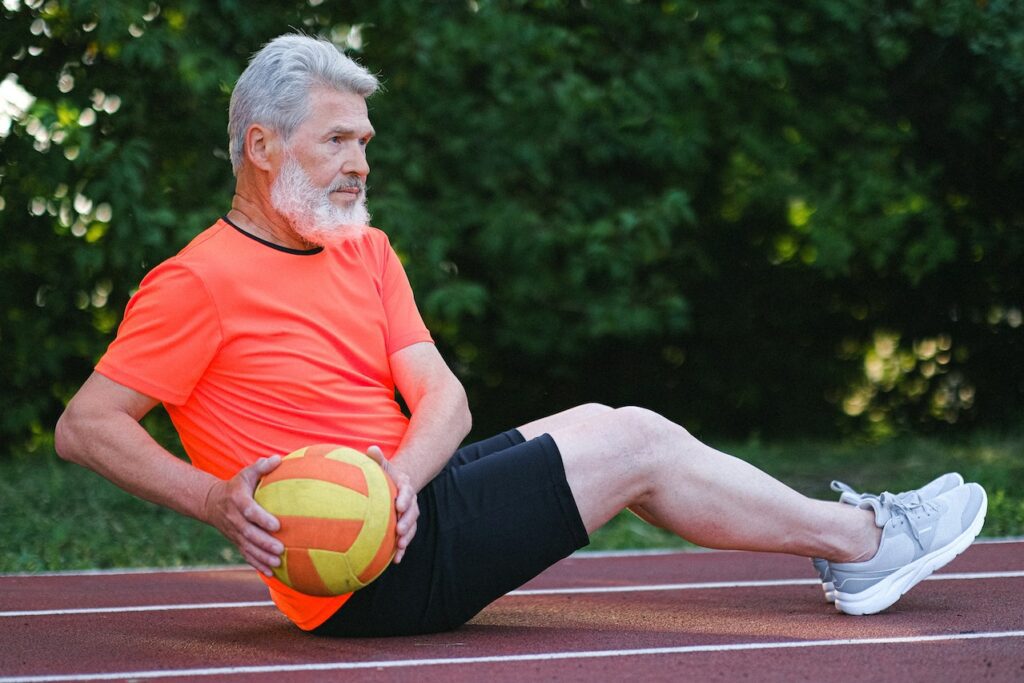What’s the best daily routine for aging well?
In the graceful journey of life, aging is an inevitable milestone we all embrace. While growing older is a privilege, it is also a phase associated with certain challenges. As we step into the golden years of life, we realize the significance of our years’ quality, not just quantity. With the proper daily routine, aging well can become less about combating the downsides of growing old and more about embracing and enjoying this special phase.
The concept of “aging well” extends beyond mere physical health. It encompasses the holistic well-being of an individual, including mental, emotional, and social aspects. Establishing a comprehensive daily routine can significantly contribute to maintaining an active lifestyle, improving cognitive function, mood, stress management, and overall quality of life.
This article explains how to start each step and guides how to incorporate it into your daily life. Furthermore, each section elaborates on how the specified step can contribute to aging well. Our goal is to help you create a daily routine that is not burdensome or overwhelming but rather becomes a source of joy and vitality. Ready? Let’s begin!

Start Your Morning with Mindfulness Meditation
Starting your day with a sense of calm and centeredness can significantly influence how the rest of your day unfolds. Mindfulness meditation is one such practice that encourages you to begin your day on a positive note.
To begin, find a serene space where you feel most at ease – a corner of your bedroom, your living room, or even a spot in your garden. The key is to choose a place where you won’t be easily disturbed. Once you’ve chosen your spot, set a timer for 10 minutes. This can be on your phone, a traditional timer, or even a meditation app.
As you settle down, close your eyes and take deep breaths. The objective is to direct your focus towards your breath, noticing the sensation of the air flowing in and out of your nostrils. If your mind wanders, gently bring your focus back to your breath. The goal isn’t to empty your mind but rather to anchor yourself in the present moment through your breath.
If you find 10 minutes too challenging initially, start with shorter intervals, say 2-3 minutes, and gradually increase your meditation time as you get more comfortable with the practice.
Mindfulness meditation offers tranquility, which is particularly essential for starting the day. For seniors, a few practices stand out as being exceptionally beneficial!
Enjoy a Nutrient-Rich Breakfast
Embracing the old adage, “breakfast is the most important meal of the day,” becomes even more relevant as we age. A nutrient-rich breakfast is the ideal way to kick-start your day, offering a wellspring of essential vitamins, minerals, and energy to fuel your morning activities.
Embarking on this journey begins with the selection of simple, wholesome foods. A bowl of fruits like bananas, apples, or berries can offer a burst of vitamins and fiber.
A seamless way to ensure a nutritious start to your day is to prepare breakfast the night before. For instance, overnight oats with fruits and nuts can be prepared beforehand and stored in the refrigerator. Alternatively, a hard-boiled egg or a premade smoothie can save precious morning time. This makes your morning routine smoother and eliminates any excuse to skip this important meal.
A nutrient-rich breakfast has multifold benefits for seniors. Firstly, it fuels the body with the energy needed for physical activities, be it exercise, gardening, or a leisurely walk. It also supports cognitive function, as nutrients like omega-3 fatty acids found in flaxseeds or chia seeds, and antioxidants in fruits help maintain brain health.
Moreover, a breakfast high in fiber and protein can aid in maintaining a healthy weight. Such a meal keeps you full longer, reducing the likelihood of snacking on high-calorie, nutrient-poor foods. This balanced approach to the day’s first meal is a key contributor to overall health, aiding the goal of aging well. You can check out our in-depth guide on the Top 8 Best Breakfast Foods for Seniors, According to Dietitians for more info!
Afternoon Exercise Routine
After a morning of mindfulness and nutrition, the afternoon calls for invigorating activity. Incorporating an exercise routine into your daily schedule can significantly enhance your physical strength, heart health, and overall mood, key elements for aging well.
As with any new endeavor, the key is to start slow, particularly if you’re not accustomed to regular physical activity. Opt for gentle, low-impact exercises on the joints but still offer a good workout. Walking is an excellent starting point; it’s accessible, can be done anywhere, and doesn’t require any equipment. Swimming is another great option, as the water supports your body, reducing the risk of strain or injury. Alternatively, yoga, emphasizing flexibility and balance, can also be highly beneficial.
When it comes to exercise, one size doesn’t fit all. The best routine is one that you enjoy and look forward to, as this significantly increases the likelihood of it becoming a regular part of your day. Whether it’s a dance class, a game of tennis, or a tranquil session of tai chi in the park, find something that brings you joy and health benefits.
Consider roping in a friend or joining a group class, as this makes the activity more enjoyable and adds a layer of accountability, ensuring you stick to your routine.
Even in our senior years, physical activity remains pivotal for overall well-being, and the afternoon presents a perfect window to engage in some light but beneficial movements.
Consider embarking on a walking routine. A leisurely 30-minute walk around your local park or neighborhood can improve your cardiovascular health and mood. If you’re up for a challenge, intersperse periods of brisk walking for an added heart rate boost.
In summary, an afternoon exercise routine is a critical part of the puzzle in creating a daily routine for aging well. It keeps the body strong, the heart healthy, and the spirit high, contributing to overall well-being and longevity.
Engage in Mind-Stimulating Activities
An active body complements an active mind. Therefore, following your afternoon exercise, shifting your focus to mind-stimulating activities is ideal. This not only keeps your cognitive function in check but can also potentially slow cognitive decline.
Following an invigorating afternoon of physical activity, transitioning into mind-stimulating pursuits can offer a harmonious balance to your daily routine. These cognitive exercises are akin to taking your brain to the gym, promoting sharpness, memory retention, and overall mental health, all of which are cornerstones for aging well.
Imagine curling up with a captivating novel that transports you to another world, or a non-fiction piece that enriches your knowledge and broadens your perspective. Reading is an exceptional mental exercise, improving your vocabulary, analytical thinking, and memory. Choose a genre that intrigues you to make the activity engaging and enjoyable.
Puzzles are another potent brain stimulator that blend challenge and amusement. Whether it’s assembling a colorful jigsaw puzzle, solving a Sudoku grid, or unraveling cryptic crossword clues, these activities boost your problem-solving skills and concentration, keeping your mind active and agile.
Think of these activities as a gym workout for your brain, strengthening your cognitive muscles and enhancing your mental agility. When incorporated into your daily routine, they contribute significantly to the overall goal of aging, promoting mental and overall well-being.

Preparing a Balanced Dinner
As the day transitions into the evening, it’s time to turn your attention to preparing a balanced dinner. This meal, like your breakfast, plays a significant role in your overall health, providing essential nutrients and supporting good digestion.
Planning is the cornerstone of a healthy diet. Start by planning your meals ahead, focusing on a variety of foods to ensure you receive a spectrum of nutrients. Your meals should include lean proteins such as chicken, fish, or tofu; a rainbow of fruits and vegetables to provide essential vitamins, minerals, and fiber; and whole grains like brown rice, quinoa, or whole grain bread, which offer sustained energy and further fiber.
Making every meal from scratch may not always be practical. In such cases, consider meal prepping. Dedicate a day of the week to prepare several meals in advance. Not only does this ensure you always have a healthy meal ready, but it also makes your daily routine smoother and less stressful.
The best way to ensure that your meals are balanced and healthy is to cook at home. This way, you have full control over the ingredients used, the cooking methods, and the portion sizes. Home cooking also allows you to reduce the sodium, sugar, and unhealthy fats often found in processed or restaurant foods.
Eating balanced meals is crucial for aging well. It provides the nutrients needed for various bodily functions, including immune function, tissue repair, and energy production. Moreover, a diet rich in fruits, vegetables, and whole grains supports good digestion, reducing the risk of constipation and promoting overall gut health.
In addition to physical health, a balanced diet also influences mental well-being. Certain nutrients, like omega-3 fatty acids found in fish and B vitamins found in whole grains, are known to support brain health and mood.
Evening Wind-Down with a Goodnight Ritual
Creating a calming wind-down routine is akin to whispering a gentle lullaby to your body and mind. This might involve losing yourself in the pages of an engrossing novel, where the unfolding narratives provide a peaceful distraction from the day’s events. For others, it might be the soothing harmonies of soft music that lulls the mind into tranquility. Or perhaps, a warm, aromatic bath to relax tense muscles and usher in a state of calmness.
A goodnight ritual is more than just a pleasant end to the day; it’s a cornerstone of health and wellbeing. Our bodies utilize sleep for critical functions like tissue repair, memory consolidation, and hormonal regulation. Thus, quality, restful sleep can significantly improve physical health, cognitive function, and mood, contributing to a healthier aging process.
Neglecting sleep, on the other hand, can lead to a cascade of health issues, ranging from weakened immunity and mood disorders to chronic conditions like heart disease and diabetes. Therefore, an evening wind-down routine is a good practice and a necessity for aging well.
As daylight fades into twilight, imagine curling up with a captivating novel, sipping a warm cup of chamomile tea. The enticing words combined with the calming beverage transport your mind to a tranquil state, the perfect precursor to a night of restful sleep.
Should your senses crave a soothing atmosphere, consider the gentle hum of a diffuser filling your space with the calming scents of lavender or cedarwood. As the aromatic whisper of essential oils envelops your room, pick up a journal. Reflect on your day, jot down moments of gratitude, the simple act of putting pen to paper becomes a bridge from the bustling day to a night of tranquility.
Each routine, unique as a fingerprint, leads down the same path – to a night of peaceful, restorative sleep. Do you have any tips to create a better daily routine? If so, please leave a comment below and let’s chat!














